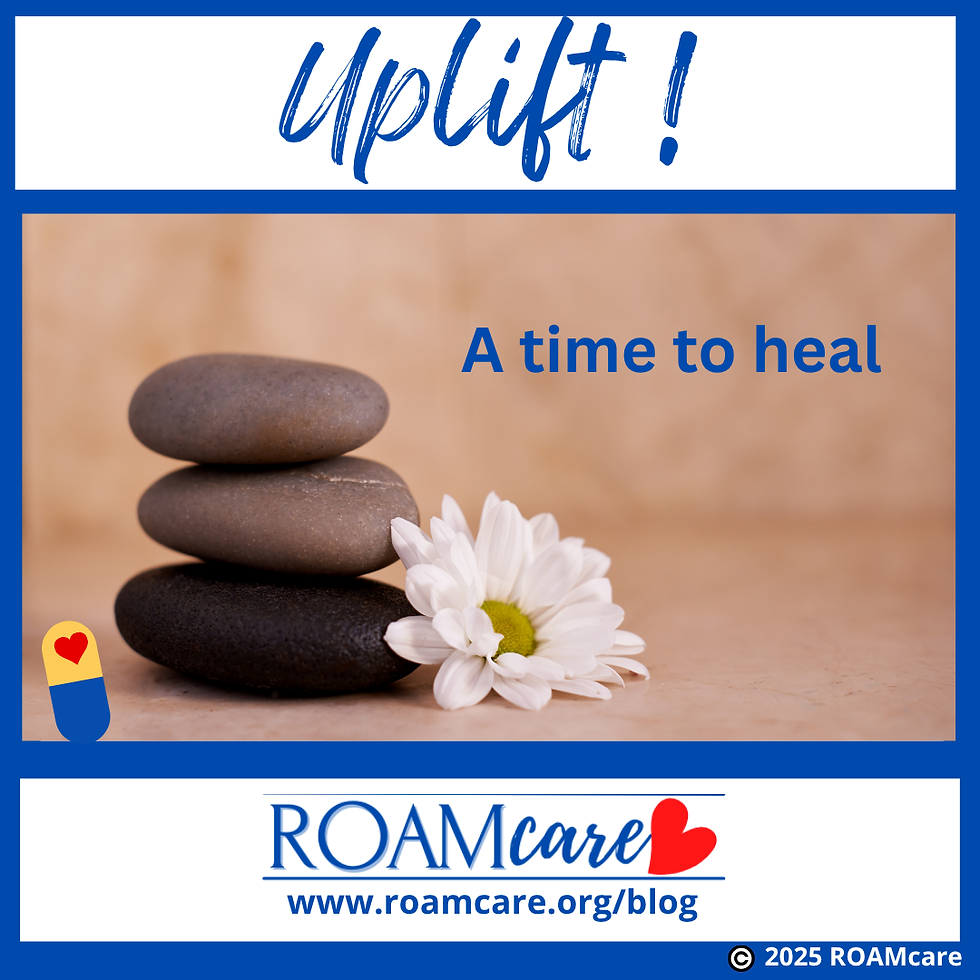The choice is yours
- roamcare
- May 28, 2025
- 4 min read
If you are a sports fan, there is a lot going on to keep you happy. Baseball is in full swing, hockey and basketball are in the midst of their championship series, soccer leagues are gearing up, football will soon be in training camp, the golf world is coming up on the U. S. Open, we are 2/3 of the way through the Triple Crown races, and INDYCAR and NASCAR have started their engines. Not into sports? The year’s most anticipated new movies have or will soon be released, summer theater groups are in final rehearsals, music festivals are right around the corner, and summer food festivals started on the Memorial Day weekend. Still looking for something else? Pools, parks, trails, and resorts are cleaning up to welcome travelers looking for fun, adventure, or some pampering. The choices are many and varied. And somewhere, someone will be complaining there is nothing to do.
We are like that sometimes. So many choices to pick from make it almost too many and makes it too easy for making excuses not to do anything. Another danger from too many choices is that we may feel pressure to pick one without considering the pros and cons of all the possibilities. How does one navigate such an embarrassment of choices?
One might think the logical choice is the best choice. But is it? Does sometimes emotion not trump logic? And who is to say what is logical? Having too many choices can lead to the very real and uncomfortable phenomenon of choice overload. American psychologist Barry Schwartz explains this in his book Paradox of Choice: Why More is Less. He writes that having too many options may often lead to negative outcomes, including choice paralysis, and dissatisfaction.
Choice paralysis is when we have so many choices we choose none because we are overwhelmed and confused. Rather than risk making a bad decision we make no decision. Dissatisfaction occurs when we’ve made a decision but are disturbed by the possibility that there may have been a better one, disturbed to the point that we regret making the choice we did.
Sheena Iyengar, author of The Art of Choosing, puts people into two camps of choosers, the Maximizers and the Satisfiers. She writes that when faced with a decision, the brain carefully examines each choice. When presented with many choices, to avoid overload, the brain starts to simplify everything, throwing out the non-essential bits to reduce the complexity. Whether we let ourselves follow our brain’s lead is what puts us in which camp. Maximizers look for best possible decision, and weigh all the options, straining their thought processes. They tend to mentally exhaust themselves and to be less satisfied with their decisions. Satisfiers look for the good enough choice, bypassing choice overload and examining only the essential elements for what makes them happiest.
Too many options, even interesting and enjoyable choices, make decision making difficult and exhausting, leading to dissatisfaction with the ultimate choice. Fewer choices simplify the process and result in less frustrating decision making, sometimes at the expense of the most enjoyable choice not being the ultimate choice. Can one find a way to make multiple choice decision making a better experience of being less frustrating without being potentially less enjoyable. We feel you can!
When life presents you with so many choices, whether what movie to watch or which job offer to accept, it helps to determine what you want, or don’t want, and what will make you happy. Not so much what do you want as much as what do you need.
There may be three really good movies playing weekend, but if what you really want is to sit by the pool reading a book, choosing any movie will leave you feeling disappointed. You might have the job offer from the company of your dreams in front of you, but if it means taking a step down the corporate ladder, you may be trading confidence for tedium.
Restating your actual desire may eliminate some choices, regardless of how inviting they may be. Further defining how much time you are willing to commit to the activity may take others off the list. Is there a cost component and a corresponding ceiling of what you are willing to pay? By asking yourself what you want to do and what you are willing to give up to do it is a valid way of eliminating choices that do not interest you. Eventually you can present yourself with an either or, or a which of three selection that is much more manageable than a seemingly unlimited number of options. The “winner” is the answer to one last question. Which will bring me the most joy?
It is good to have choices. Being told what to do, when to do it, and how to do it, makes life boring. Too many choices make life unmanageable. Somewhere in the middle lies happiness.





The plethora of choices in any and every venue is overwhelming, to say the least. Just going to the grocery store and looking for a loaf of bread can be a crazy-maker. I appreciate your method--looking at what I desire, what I'm willing to pay in time, talent, and treasure, and what will bring me the most joy--makes sense! I'm one of those who struggles with too many choices. This could be a true breakthrough for me! Thanks, y'all!